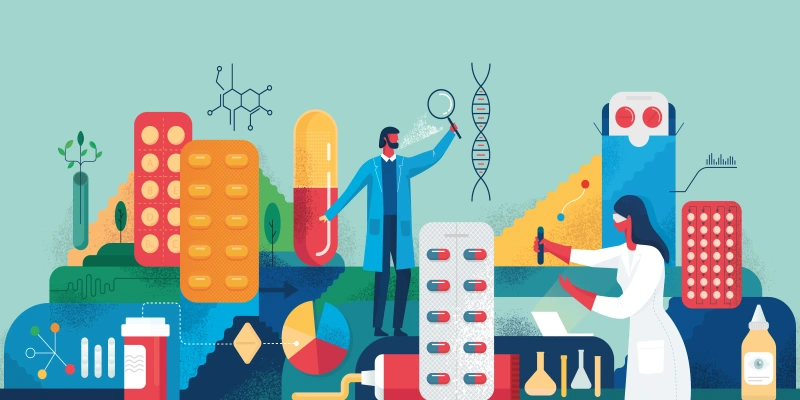Researchers have identified pathogenic variants in 4 genes that are independent risk factors for worse survival in gastric cancer. These findings could potentially pave the way for precision oncology and targeted therapies, according to a study presented at Digestive Disease Week 2025.
These findings revel a “clear genetic signature that can help identify patients with especially poor outcomes,” said lead study author Ulysses Ribeiro, MD, PhD, a professor at the Instituto do Câncer do Estado de São Paulo in Brazil. “This is a step toward more precise and more equitable treatment for gastric cancer and a foundation for further researching global populations.”
Gastric cancer is a complex and heterogeneous disease, and while treatment strategies have improved in recent years, the mortality rate remains high due to various genetic mutations that underlie the progression of the disease.
“Today, most of these tumors are treated in the same way with surgery and chemotherapy and more recently immunotherapy,” said Dr. Ribeiro. “We wanted to see if genetic alterations could help us predict outcomes that could potentially enable doctors to offer targeted treatment that would spare many patients from unnecessary and aggressive procedures.”
To identify genetic variants with possible prognostic value, Dr. Ribeiro and his colleagues used next-generation DNA sequencing to analyze 21 genes obtained from tumor samples of 87 patients with gastric cancer. All patients in the cohort had undergone curative surgery and chemotherapy at a single cancer center in Brazil.
“Patients received the best treatment with gastrectomy, plus lymphadenectomy, extended lymphadenectomy, and chemotherapy or immunotherapy,” he explained. “All patients were followed.”
The survival analysis identified a set of 4 genes (BCRA2, CDH1, RHOA, TP53) with pathogenic variants and variants of unknown significance (VUS) that had an impact on prognosis. Among the 87 patients evaluated, 29 (33.3%) harbored pathogenic or VUS mutations in the 4 genes. These mutations included both well-established cancer drivers and previously unknown variants that may be important.
Each of the four genes individually had significantly or near-significantly higher risks in a survival analysis as compared with wild-type or benign variants: BRCA2 (hazard ratio [HR], 4.33; P = .030); CDH1 (HR, 7.54; P = .004); RHOA (HR, 29.24; P < .001); and TP53 (HR, 2.82; P = .07).
The researchers also found that both disease-free and overall survival were significantly worse in patients harboring the pathogenic variants/VUS when compared to other cases (p=0.005 and p=0.009, respectively). In multivariate analysis, more advanced TNM pathological stage and the presence of pathogenic mutation or VUS in the 4 genes of the model were independent factors associated with worse disease-free survival.
“This is the first time that we've shown that these four genes are strongly related to outcome,” said Dr. Ribeiro. “It suggests there's more than one pathway from how stomach cancer formed and that some of them are much more aggressive than others.”
He explained that patients without these high risk mutations may need less aggressive treatment, and thus avoid unnecessary side effects. They are also investigating how these gene mutations are related to protein markers that can be detected in the whole team lab tests.
“We can find these links between these alterations and the immunohistotokines, for instance, and it could make screening more accessible, especially in places where sequencing isn't widely available,” he said.
Another important aspect of this study is the population of the cohort, which has been underrepresented in gastric cancer research. To date, most gastric cancer research has focused on East Asia populations, where the disease is more common. “Our study highlights important genetic patterns in these Western patients, specifically those of European and Latin descent in Brazil,” he said.
This study was supported by the State of Sao Paulo Research Foundation (Fundação de Amparo à Pesquisa do Estado de São Paulo- FAPESP) – Grant number: 2020/10878-7
“Next-generation DNA sequencing identifies somatic mutations associated to prognosis in gastric cancer patients.” Abstract 152, presented May 3, 2025. Digestive Disease Week 2025
Image by GoodStudio / Shutterstock





